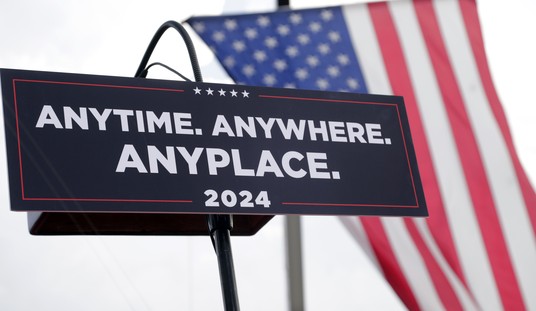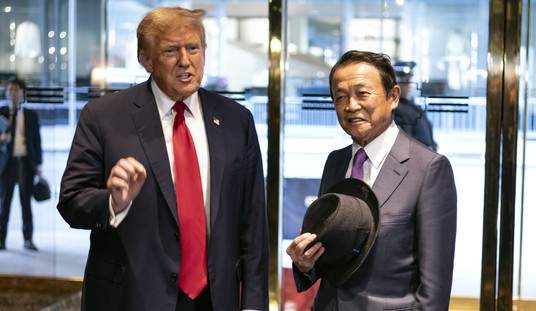In my latest column for The Week, I ask if Barack Obama truly knows what he wants as an outcome from the Egyptian crisis. After getting off to a good start in a near-impossible situation for the US, Obama then jumped the gun by demanding a “transition” from the Mubarak regime, which Robert Gibbs emphasized the next day by saying “now means yesterday.” At the same time, Obama sent a personal envoy to Hosni Mubarak, and the choice of envoy turned out to be a predictable disaster. Within a few days, the US was in retreat from its earlier demands:
In the middle of this vacillation, Obama chose former Ambassador to Egypt Frank Wisner to go to Cairo and handle Mubarak personally. Wisner, who has served as ambassador to five countries in twenty years, went to review the crisis and speak directly with Mubarak on Obama’s behalf. Within days, Wisner publicly insisted that Mubarak needed to stay in office, saying that “President Mubarak’s continued leadership is critical.” The Obama administration had to distance itself from its own special envoy, who got promptly recalled and this week returned to his day job.
And what exactly does Wisner do these days? He works for the lobbying firm Patton Boggs, a company that advertises its connections to Mubarak regime, according to the British newspaper The Independent. Patton Boggs “openly boasts that it advises ‘the Egyptian military, the Egyptian Economic Development Agency, and has handled arbitrations and litigation on the [Mubarak] government’s behalf in Europe and the U.S.’.”
With those kinds of connections deep within the Mubarak regime, the choice of Wisner only makes sense if Obama wanted someone who could play ball with Mubarak. Sending Wisner to Mubarak had to be seen in Egypt as a gesture of conciliation, which was the opposite of the public message Obama had begun literally broadcasting from Washington. At the very least, one might have thought that the White House might have asked Wisner what he thought before sending him to deliver Obama’s message, if indeed Obama didn’t want to signal conciliation.
The White House insists that Wisner was only chosen to deliver a message, and that he returned to the US at the completion of the mission. They’re also trying to downplay Wisner’s connections to Patton Boggs, claiming that he didn’t do much work for their Egyptian clients. But that explanation doesn’t make much sense, either:
Now the White House claims that Wisner’s mission has concluded and that all subsequent communications can be handled by current State Department personnel. If so, then why send Wisner at all? The current ambassador, Margaret Scobey, is both well-qualified and well-positioned to deliver it, having been in place for almost three years. Wisner, in contrast, had last been ambassador to Egypt 20 years ago. Either the Obama administration has an inscrutable secret strategy for handling the crisis, or they are making it up as they go along.
Andy McCarthy has a must-read essay on the nuances of the crisis in Egypt today at National Review:
Most of the commentary, very much including conservative commentary, ignores this diversity. It assumes a monolithic Egypt — whatever monolith best serves the particular commentator’s policy preferences. When neoconservative enthusiasts of the Bush democracy project look at Egypt, they seem to see only the pro-Western secularists. Discounting profound cultural differences between Islam and the West, presuming instead that all people are essentially the same and have a common yearning for freedom, they marginalize Egyptians who do not fit the mold — as if these tens of millions were some unrepresentative fringe or the product of someone’s fevered imagination. On the other hand, many other conservatives, justifiably alarmed over the potential Muslim Brotherhood ascendancy, portray the Brothers as if they were ten feet tall — poised to roll effortlessly over secular Egyptians, hijack the armed forces, and begin bombing Tel Aviv by noon tomorrow.
Egypt is far more complicated than these competing visions, and others on offer, suggest. To begin with, not all of Egypt is rebelling, and not all of those protesting in the streets are protesting for the same reasons. Some actually support Mubarak. That should come as no surprise: One doesn’t hang on as an authoritarian ruler for 30 years without cultivating the right elements of society. Life, however, could get considerably less comfortable for the pro-regime elements if their patron is gone, so they want him to stick around — even at 82 and in failing health.
The anti-Mubarak opposition encompasses a majority of the country, but it is a mixed bag. If there is one uniting factor, it is not Mubarak’s brutality but his cupidity. He and his family seem to have socked away a fortune larger than Egypt’s public debt, making them billionaires 40 times over. A number of Mubarak cronies are now billionaires, too, having skimmed off the regime’s hammer-lock on industry — and this, in a country with rampant poverty, real unemployment at over 20 percent, and many working Egyptians surviving on only a few hundred dollars a year.
Concern over Mubarak’s iron fist is what most animates the Western press, which takes its cues from progressive intellectuals and self-styled human-rights crusaders. Among Egyptians, though, dissent over Mubarak’s brutality against Islamists and suppression of political opposition pales beside revulsion over his financial corruption.
Americans want to see representative democracy flourish, and we don’t like dictators. That’s why Bill Kristol argued that conservatives should demand Mubarak’s ouster and “stand for freedom,” and he’s right — to a point. That question has to focus on what the long-term results will be from specific actions taken now. Will Mubarak’s ouster lead to freedom, especially a lasting freedom that allows for political diversity and the type of human rights taken for granted in the West? McCarthy is not optimistic:
Much is made, including by President Obama, of the fact that the Brotherhood is a minority faction, popular with perhaps a quarter of Egyptians. That, though, is a formidable plurality — the Bolsheviks probably had less popular support in 1917. To be effective, especially when things are in disarray, a faction doesn’t need to be a majority. It needs to be disciplined and better organized than its competition. Under one authoritarian regime after another for generations, most Egyptians have been busy just trying to get by. Game-planning a revolutionary reordering of society hasn’t been on their radar. But it has been the Brotherhood’s obsession since 1928. Moreover, the Brothers have been gradualists about their goals precisely because they believed it would be important, when their moment finally came, to be ready to hit the ground running.
They are ready. Even as a technically outlawed organization, the Brotherhood has become the leading opposition group in the assembly. If there is a quick transition, meaning popular elections and a new government, the Brotherhood is certain to improve its position. In all likelihood, it will not be a majority party, but it will have enough of a plurality to exercise enormous influence over the levers of power and perhaps to decide who wields them.
The new Egyptian government would be more Islamist, more anti-American, and more hostile to Israel. How much the tide would turn from Mubarak’s pro-Western tilt would depend on the military, the upper ranks of which will not want to return to a state of war with Israel, regardless of the Muslim Brotherhood’s desires and the unpopularity of Israel among the broader Egyptian population. As I’ve argued previously, while the military is the most stable institution in Egypt, we should be careful not to overrate its promise as a bulwark against the Islamist advance.
It was easy to stand for the Green Revolution in Iran in 2009 (at least for everyone outside of the White House), because we already had the worst-case scenario in front of us: radical Islamists in charge of an oppressive theocracy, armed with substantial military might. There, change could not possibly have made the situation worse, especially with the mullahs’ appetite for nuclear weapons. With Mubarak, and even with a transitional phase with his VP Omar Suleiman, we don’t have the worst of all cases in front of us. Furthermore, with a longer transition, there is hope that democratization forces apart from the Muslim Brotherhood will have time to organize and keep the Brotherhood marginalized in the minority — but a rush to sudden change will leave the Brotherhood alone in the field, with just an army junta the only force blocking them from power.
We all want a liberal democracy to eventually arise in Egypt, but pushing Mubarak out may not be the best way to get there — and we shouldn’t be so arrogant as to demand his ouster without any thought of what follows in the chaos ahead. The US does not have a strong hand in any case in this crisis, and we should have gone about our efforts with a great deal more humility and subtlety than Obama demonstrated last week.








Join the conversation as a VIP Member